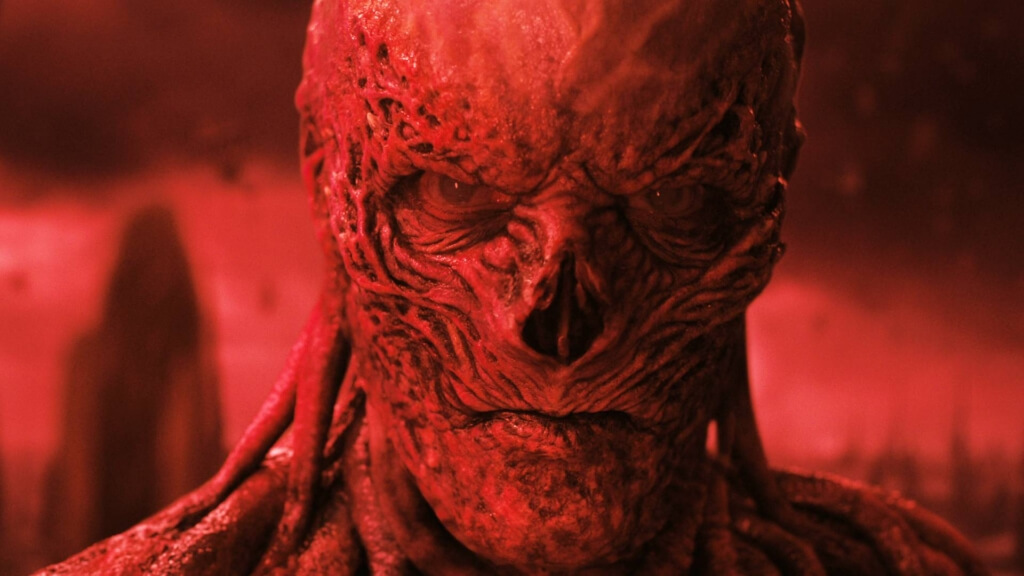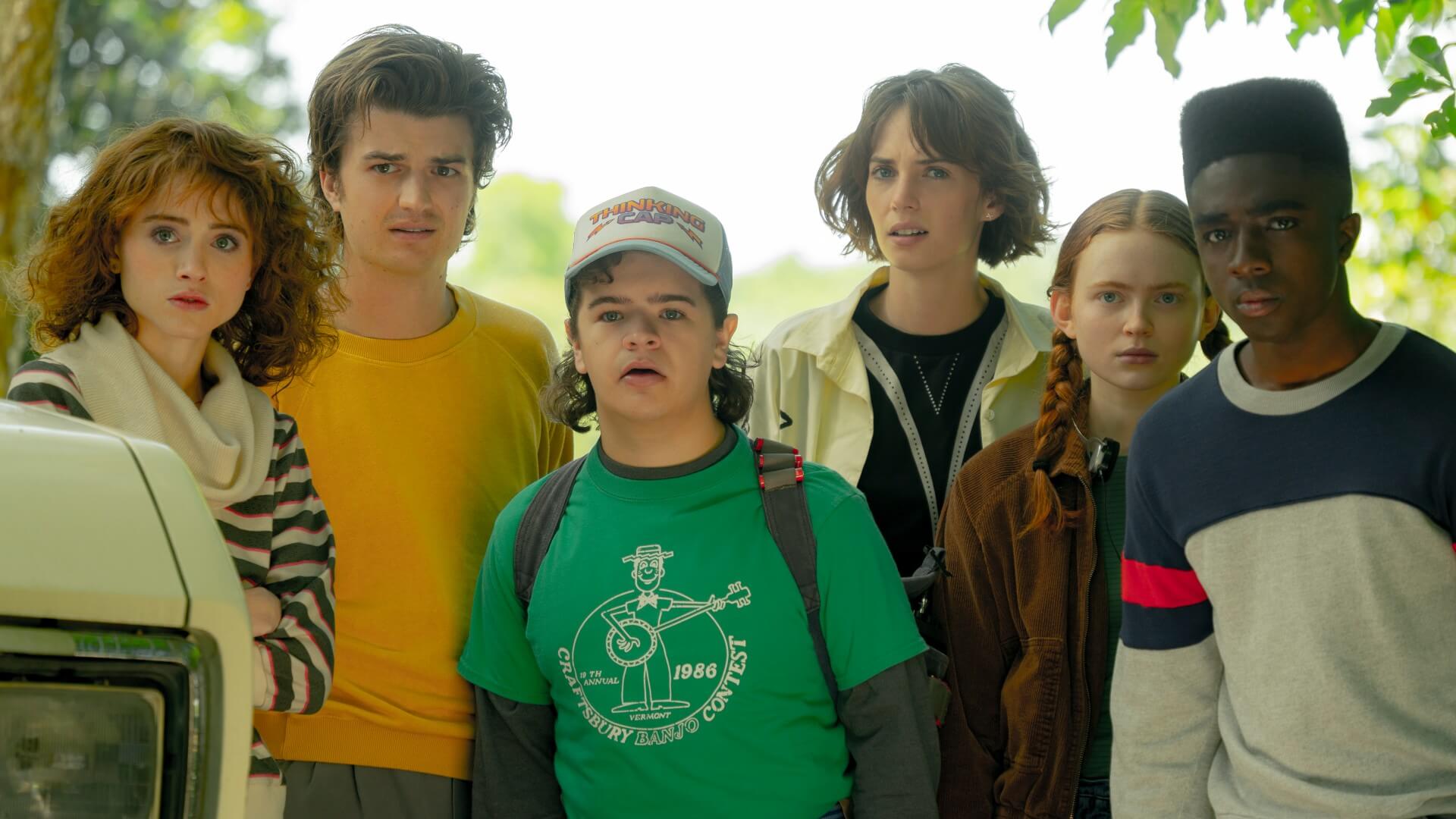In this episode we talk with the sound team behind the dialog on Season 4 of Stranger Things. Ryan Cole (Dialog Supervisor), Michael Clark (Production Sound Mixer), Korey Pereira (Dialog Editor) and Jill Purdy (Dialog Editor) talk us through the voyage all the dialog took from set to mix stage. The miracles of Vecna’s voice, organizing session templates for use with multiple editors and tackling scenes with lots of characters all talking at once, are all discussed.
Check out Part 2 of our Stranger Things coverage, featuring our talk with the sound design team on Season 4.

LINKS:
____________________
The following is a lightly edited and repaired, A.I. generated transcript of Tonebenders episode 194 – Dialog From Set to Mix on Stranger Things Season 4. Please excuse any typos or translation mistakes made by the algorithm. It is not meant to be read like a polished blog post.
Tim Muirhead/Host
Ryan Cole / Dialog Supervisor
Michael Clark / Production Sound Mixer
Korey Pereira / Dialog Editor
Jill Purdy / Dialog Editor
_____________________
Timothy Muirhead
Hello, and welcome to Tonebenders. My name is Timothy Muirhead and I will be your host for today. We have two episodes coming up about the amazing sound work done on season four of Stranger Things. In our next episode following this one, we’ll be talking with the sound design and sound effects editing team. But today I’m really excited to be joined by the dialogue and ADR crew. Stranger Things is a show with a massive cast. And in this season, they were all spread out over different parts of the world. And in addition to different physical locations, scenes also take place in many different planes of reality. In order for this all to sound like it’s part of one cohesive greater whole, the dialogue team had their hands full. From set to final mix, our guests dealt with an absolutely massive amount of content and nurse it across the finish line in the highest levels possible. Joining us today are dialog supervisor Ryan Cole. Ryan, it’s great to have you back on again. Welcome to the show.
Ryan Cole 1:40
Thank you very much, good to be back.
Timothy Muirhead 1:41
Also joining us our dialogue editors from Strangers Things Season Four Jill Purdy and Korey Pereira, who have both been guests on Tonebenders previously, and are always excellent to talk to. It’s great to chat with you both again, Jill and Korey, welcome.
Jill Purdy 1:53
Thank you.
Korey Pereira 1:54
Thanks. Good to be back.
Timothy Muirhead 1:55
Finally joining us is the production sound mixer Michael Clark, we don’t have enough sound pros from onset on Tonebenders. So we are always very happy when one comes on. Michael, a big hearty welcome to you as well.
Michael Clark 2:06
Thank you for having me.
Timothy Muirhead 2:07
So let’s get started on the talk about Stranger Things. This is going to be my first question for the sound effects crew as well. But how do you handle just such a massive amount of content? It’s basically like a bunch of movies instead of a bunch of episodes of a series. And I’m assuming you didn’t have the same time schedule as you would for nine different movies. Ryan, do you want to tackle how you just figure out how to get this all in in the time frame that you have?
Ryan Cole 2:32
Honestly, just one episode at a time. You know, we get we did it in order, which really helped and you know, back from the get go Dean and picture crew were sending seems I mean, I was getting stuff as early as February 2020, from Lithuania. And Michael and I were talking at a very early stage. I think Michael, was it a couple of months in when we first started talking?
Michael Clark 2:53
Yeah, yeah, yeah, yeah, it was very early. I like to talk to post production early on, mostly to kind of give them red flags of things that are happening on set that, you know, potentially could be problems in just preserving the dialogue, as well as discussing after seeing Vecna For the first time kind of discussing an approach for him, that we’ll probably get into a bit later.
Ryan Cole 3:16
I mean, that was that was really it. It’s about communication, which this team is really great at. So we’re getting things ahead as much as possible. We got an early cut of episode nine back in September, so that we could do a kind of a pre cut just to get ahead of the visual effects and that sort of thing. But honestly, it was just about doing it one episode at a time, I would, I would say and coming up with a team and a plan and just hitting each one. I’m trying to be consistent as possible so that it made it as easy to get from one episode to the next.
Timothy Muirhead 3:45
Well,you guys just hit on something that I wanted to bring up because everyone that I talked to where I said I was talking to the sound team for Stranger Things said, Oh, we have to talk about Vecna’s voice, Vecna’s voice, Vecna’s voice, Vecna’s voice. That was one of the main things everyone wanted to talk about. So Michael, you just brought up how it was capturing it on set. Do you want to go into that for us?
Michael Clark 4:04
Well, we I work with digital, wireless. And one of the first things that Ryan had noticed when I started turning into my tracks is that there’s a hard roll off in the digital wireless spectrum with the gear that I use it it’s 16k. And when I met Jamie for the first time we met him as Vecna doing the scenes in episode one. And his voice was just astounding. I mean, it gravitated to the microphones. It was just deep and guttural and I think a lot of people are amazed at the fact that that’s mostly his voice aside from a lot of treatments that got done the tone, that’s him. And I immediately contacted Ryan and talk to him about what happened with season three. And he mentioned to me that they did a lot of oversampling shooting Billy at higher sample rates. And I suggested that I can actually perform that here on set if Would it be beneficial for you guys to shoot him at a higher sample rate and I ended up because of the nature of the wireless that I was using, I decided to go hard lined, give him full spectrum as much as he can have and utilize to be able to pull in tweak and lower if they need to, not that they ever needed to. And I did that as well as every character that Vacna talks through. So Dr. Brenner, Caleb and just wanted to give them options to deal with in post production. And then when I met Jamie as the friendly, orderly, completely different pitch, completely different approach. And it was really astonishing to hear his range. Ryan and I talked about it and we ended up recording him at like 192k. And it ended up being too much.
Ryan Cole 5:49
Because we didn’t know exactly what we were going to do with his voice at the very first the recording of 192 was great. But then after hearing that, and the treatment, that chain that Craig Henighan our sound supervisor made, we really didn’t end up using one or any of the 192k because his voice was so rich, we didn’t really know if we were gonna want to pitch it, but we didn’t have to at all because he was just so great. I don’t know, I think on Twitter, the Duffer Brothers posted a video of Jamie doing the voice and ADR and he just nails it,
Jamie Campbell Bower recording ADR as Vecna 6:18
I saw a means to realize my potential to transcend my human form. To become the predator I was always born to be.
Ryan Cole 6:33
Craig early on, sent a treatment of the voice to the brothers and dean and shaun chon and those guys with a treatment that you’d like his first pass. And everyone loved it, he kind of knocked it out of the park just from the beginning. And there’s not it’s a lot of delay and reverb. There’s really no pitching. And you know, there’s some EQ to really give it some girth. But Jamie’s doesn’t really need that. And even I think if you were to listen to the center channel, if you’re listening and five one that’s just going to be Jamie’s voice dry, for the most part. Plus, then Mark Patterson, our dialogue and music mixer did more panning with it.
Click on Page 2 below, to read the rest of the transcription of this episode.
Pages: 1 2

